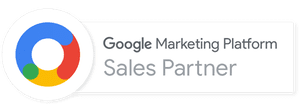I love teaching.
It keeps me on the edge, it brings a steady flow of questions and arguments.
Another round of the UBC 4th and final course of the program, “Creating and Managing the Analytical Business Culture” started a few days ago and one of the participant raised a very interesting point. Here’s an abstract:
Web analytics is basically a marketing function. It should never be delegated to the IT department. To really understand what the data is trying to tell us, it is important that we fully understand our business, customers, their behaviour, actions and aspirations associated with our website, or any marketing media for the benefit of the business and company. It is imperative that the they understand how to solve people’s problems and get more returns and value for the organization. While it might be good to have IT skills in PHP, JavaScript, SQL, etc., web analytics is still a marketing function, and it is important to have business skills in SEO, online marketing, PPC advertising, Email Marketing, web design, and so on. Understanding why companies still prefer to have IT skills in candidates they are seeking out for their web analytics roles is still a great enigma for myself at this day and age.
Please keep reading!
What is marketing?
According to the collective wisdom found on Wikipedia, marketing is “the process by which companies determine what products or services may be of interest to customers, and the strategy to use in sales, communications and business development. It generates the strategy that underlies sales techniques, business communication, and business developments. It is an integrated process through which companies build strong customer relationships and create value for their customers and for themselves.” [Source: Wikipedia]. Philip Kotler, one of the definitive authority in this field, defines “marketing management” as “the process of planning and executing the conception, pricing, promotion, and distribution of ideas, goods and services to create exchange that satisfy individual and organizational goals” [Source: Marketing Management, P.Kotler, Canada 11th Edition, p.10]
What is the role of IT/IS, really?
I think we can start with a simple definition from a paper dated 1995 by Mark Silver and al. published in MIS Quaterly called “The Information Technology Interaction Model: A Foundation for the MBA Core Course“: “Information systems are implemented within an organization for the purpose of improving the effectiveness and efficiency of that organization.” More appropriately, D. Avison, distinguished professor, Decision Systems and Information Science at the ESSEC Business School present it as “a scientific field of study that addresses the range of strategic, managerial and operational activities involved in the gathering, processing, storing, distributing and use of information, and its associated technologies, in society and organizations.” [Source: Wikipedia]
Putting it all together: process!
“Marketing is a process…” and IS is about “processing information“. Isn’t it interesting? Surprised? I’m not!
While marketing focus is around understanding the market, customers and serving their needs, IS/IT role is about improving operational efficiencies – which, in the end, also impact customers. Restricting IT skills to “programming the web” is diminutive of the true role and value of IS/IT – just as it is limiting to see marketing role as a mix bag of email, PPC and design tactics.
IT as a long history and is specifically trained for problem solving, understanding processes and using data – all kinds of data. Marketing, on the other end, is typically trained to be more creative and understand the psychological intricacies of customers untapped desires. Is analytics one or the other – seriously? I don’t think so.
In the end, we can think of the marketing & IT duality as the left & right sides of the brain: the IT logical approach and the Marketing creativity. Call it the Ying and the Yang of analytics if you like; an equilibrium between marketing and IT is absolutely necessary in order to be succesful at analytics and optimization. We shouldn’t do analytics to optimize marketing, we should do analytics to optimize processes – including but not exclusive to marketing processes. As I mention in the Online Analytics Maturity Model, the only way to succeed with digital analytics and optimization is to be creative, constantly pay attention to details, and find the most optimal and realistic solutions as part of a continuous improvement process.
Thoughts? Do you agree marketing and IT are both essential components of digital analytics?

















